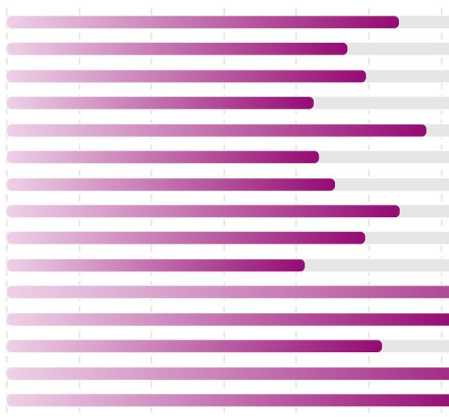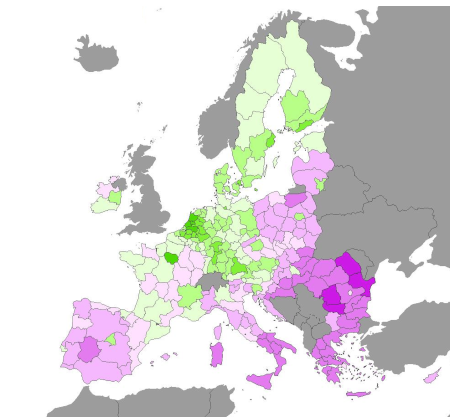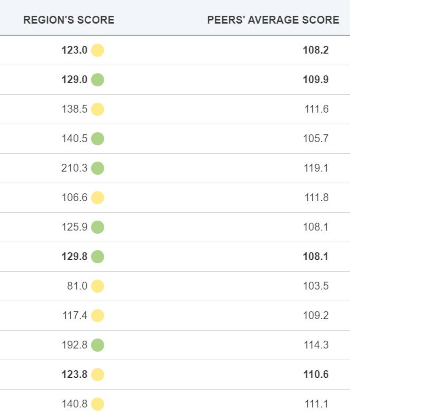EU Social Progress
The EU regional Social Progress Index (EU-SPI) aims to measure social progress for EU regions as a complement to traditional measures of economic progress, such as the Gross Domestic Product (GDP). The index follows the overall framework of the global Social Progress Index and is based on 53 socio-economic and environmental indicators, using twelve components that are further aggregated into three broader dimensions describing respectively basic, intermediate, and more subtle aspects of social progress.




